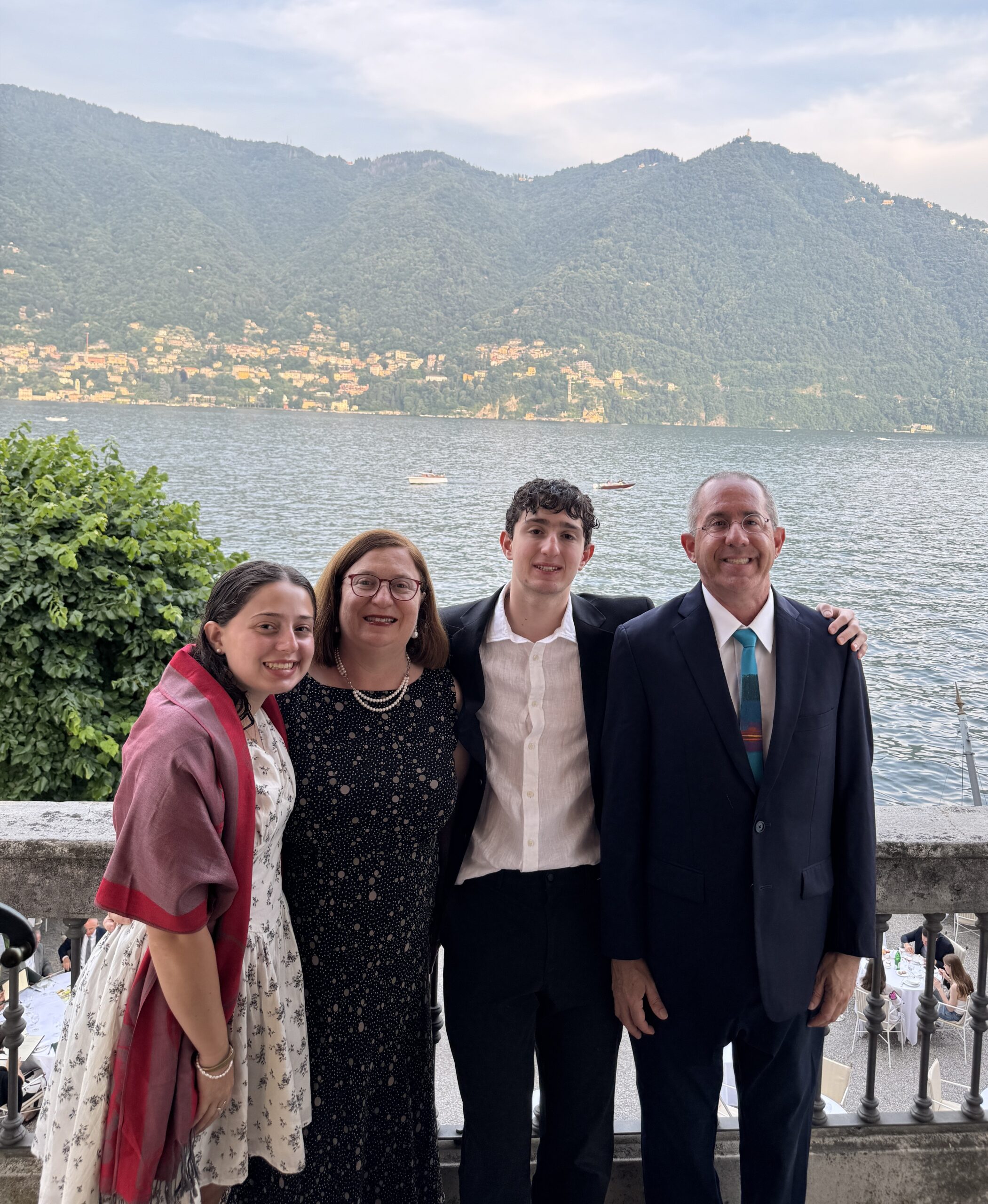Are we better off now than we were 7 years ago? No more USSR? What about the idea of helping our enemy’s enemy? Have we been burned by doing so? Has the U.S. benefitted or injured itself and the world at large by both acting and failing to act with regard to changes in the world such as the fall of communism and now the chaos in Russia? The Middle East and who knows what else?
What kind of foreign policy is needed in this multi-polar and increasingly unstable world?
Consider the following:
1. The USSR, while hostile, was rather predictable, cautious and responsible. Information deficit rather than true conflict was the cause of most crises and competition in third countries, which could have been avoided had the US not been preoccupied with an almost irrational fear of anything communist.
2. Today Russia is collapsing, there is leakage and decentralization of control over stockpiles of nuclear, biological and chemical (“NBC”) weaponry which is more dangerous than ever to all civilizations. Anti-Americanism in Russia is at its highest in 30 years because we have been pushing economic reforms which have hurt ordinary Russians and only benefitted the Mafias running the country who have milked the country and are causing instability abroad by running foreign policy geared only toward making money for themselves.
3. Afghanistan: We helped drive the Russians out. We supported the Taliban and gave them stinger missiles. Now they have taken over the country, are running it into the middle ages and housing terrorists that blow up our embassies and truly frighten us because we know that if we get rid of the sheikh it will only ratchet up the terror to a higher level.
4. This sheikh was once upon a time on the CIA’s payroll. So was Saddam Hussein. So was Manuel Noriega of Panama. Mobutu of Zaire. So what happens? We pay them. We train them. We give them technology. Then we spend 50 times as much to get rid of them and contribute to global crises in the process which makes everyone hate us.
5. So what to do? The options are not great:
a. Do nothing to interfere abroad when we don’t like someone and trust nature to take its course under the assumption that it can’t be any worse than the laws of unintended consequences when one throws forces into motion. Past interference was based partly on the old Middle East adage: The enemy of my enemy is my friend. Problem is that we only put new enemies in place of the old ones. Do we just simply keep going with the devils we know? To some extent, we appear to be doing that with Saddam Hussein. It is apparent that he was subcontracting out his chemical & biological work to the Sudanese but we are letting him be inside Iraq. Will we pay for this later? Or have we decided that to take out Iraq only makes a vacuum for Iran to fill? So perhaps we want a balance of terror in the region. The Israelis and Americans, over a 20 year period, have not really benefitted in the long run from assassinating or hitting terrorists — the killing of the Engineer and the bombing in Tripoli set into motion the bombings in Lockerbie and a wave of terror that killed Oslo by throwing out the Labor Party in Israel in 1996. True, the peace process was only possible in the first place by the collapse of communism and the loss of competition among superpowers in the region, but the U.S.’s failure to act decisively and act as honest broker in the region and force the Israelis to compromise and show troublemakers on the Arab side such as Assad that trouble-making has real consequences has contributed to overall American weakness in the region. This government of Israel would probably prefer if the world were the same as it was 10 years ago — predictable non-negotiating enemies with no hard choices needed. The U.S. meanwhile, has no real interest in peace in the Middle East but rather benefits by a certain amount of instability and dependency on all sides. Oil must be cheap but not too cheap.
No easy answers as to this option a. Hands off can be as morally repugnant and inefficient as hands-on.
b. Only do what’s right morally and abandon the policy of helping an SOB (son of a bitch) because he’s OUR SOB. This was one of Teddy Roosevelt’s policies at the turn of this century. Assuming we all agree on what is morally right meaning, I suppose, that we don’t back dictators against other dictators, it is worth remembering that during this century America approached the world with the idea that elections make good governments. Problem is that today there are many more elections in the world but these are not necessarily producing responsive governments particularly in Africa and South America such as Peru, and there are many countries with benevolent monarchs such as Jordan and Kuwait where elections are not necessarily meaningful but people are pretty happy with their governments. America also truly felt in its gut that communism was evil and wrong. It felt that Russians were victims of a dictatorial government, just like it feels that women in Islamic countries are victims of regimes that uphold the sharia. I don’t know if Americans are truly against Islam but it certainly appears that way to most of the moslem world as a Christian-Jewish anti-Islam conspiracy. My findings even today are that most people who lived and still live under communism (ie: Cuba) and Islam are not particularly unhappy and might even be said to be happy. This mainly stems from the finding that most people are not elites and are basically concerned with making ends meet and don’t think about traveling, national and world affairs and overthrowing their governments and therefore they don’t get bothered by their governments. Our inability to set a world standard for suffering and happiness makes this option b. difficult to handle as well.
c. Assume that at this point what anyone thinks morally is in fact irrelevant. Change in the world is being driven by economic markets. The government in Indonesia fell because the country was collapsing due to market forces and the same thing is happening in Russia and is also forcing change in Asia. This would tend to mean that governments should stay out and not try to interfere (ie: backing up Japan and Russia was throwing money down a sinkhole and the markets ultimately ate up those countries on their own when they lost faith and withdrew their capital). But what about historical events such as the Marshall Plan which helped to rebuild Europe? Is a mix possible here?
d. Act more forcefully and assume that failure of American policy represents weak vacillating policy statements with failure to back up our interests with military force and/or inconsistent half-assed actions. If this is so, it means that communism fell because Reagan spoke and acted clearly and scared the Russians into an arms race they couldn’t match that bankrupted them (and there the markets took over). Enemies of our enemies were lucky that we just happened to be awake on the day we helped them into power but then since we didn’t do anything when they misbehaved, they just assumed they could do as they liked until we finally got around to acting against them, usually half-assedly. And in fact we often tolerated their misdeeds and encouraged them. No wonder the Europeans and these countries neighbors grew cynical as to American intentions when we later tried to enforce economic sanctions — a half-assed remedy which tended to hurt the people of the country and keep the rulers in place. Not to mention their cynicism when it turned out Reagan was trading arms for hostages while saying he wouldn’t negotiate. So maybe the answer here is to respond quickly with overwhelming force to deter others from acting badly. It has often been my calculation that American policy was not backed by our allies around the world because they feared we would act half-assed and leave them with the mess and in fact that’s what has often happened. This option d. deals more with mechanics whatever the moral positions may be on a particular issue and its do-as-you-say element appeals to me.
e. Realize that an important reason for failure is the lack of good human intelligence in many parts of the world coupled with a failure to adequately have an open mind to analyzing the information we receive. Many of our analysts have axes to grind, political masters with preconceived notions they want to have fed, and there are irrational concepts that fixate societies such as failure to realize that not all people think and act like Americans and this variance is not necessarily a bad thing. Most intelligence failures have not been for lack of information but for inability to correctly analyze information we got and due to our failure to have human contacts in place that could make sense out of the data (ie: it would help to have Arabic speakers working in the Arab countries). The other side to this option is that with so much deception and infiltration of the various agencies, much of the information passed through history was wrong. In today’s world, however, most of what one needs to know is in the newspapers and technical journals. Reliance on spying itself became important because the people who should have been talking to each other in the first place to know of the other’s intentions weren’t doing so and THAT was the problem.
So I am working on refining my world view in light of all these events and in consideration of these confusing options. My evolving opinion toward creating a code of policy is that:
1. A Good Government is one in which the citizens of the country appear to be happy with it or at least no alternative exists. We don’t act against Good Governments even if we don’t like their alliances or their systems. India and Pakistan may not be acting the way we like but they are acting rationally, appear to be Good Governments, and it is not unexpected that other countries such as them and China want nuclear weapons. It is not within our rights to sanction them unless they pass them along to Libya which does put up terrorists and then that would be support of terrorism and make them fair game for our hit list as discussed below in paragraph 4. Even the Arab countries put up with the present Israeli government because no alternative exists at present. Same problem with Russia — no one outside of Russia can contemplate what other kind of government they could have.
2. Governments should not try to interfere by backing up weak countries that are acting irresponsibly or are pocketing international aid. If they are meant to fall, they will fall anyway. Why prolong the agony? I am not sure that capitalism is good and communism is bad but the evidence seems to show that regulated capitalism works and communism doesn’t if it doesn’t reward individual effort and merit, give people incentive to treat property kindly and protect investment. Likewise, total sink-or-swim capitalism is dangerous and can lead to monopolization which is a bad result. Good capitalism gives everyone a fighting chance.
3. We need a hell of a lot more spies and better chiefs overseeing them. Better political people and elected officials would help but that’s asking for too much. More people to people exchanges is a good thing, particularly with countries we don’t like. Embargos of tourists and goods are stupid. One good thing about today’s world is the Internet which lets people communicate. So when I say we need more spies, I don’t really mean cloak and dagger. I mean we need more communication and less information deficit. But we also need the people to analyze what it all means.
4. If the US is going to act to protect its interests, it should do so under the following rules:
a. If the problem is terrorism against U.S. targets or citizens, this is an act of war. It is not necessary to find the actual terrorists if they are being supported by a government. It is enough to act against the government. Sovereignty may be disregarded since it is an act of war. Better to act by using physical force and intimidation against people in the government and their families (ie: in quickly escalating stages: no visas, freezing accounts, kidnapping and murder) and their personal properties. [Meaning that by the end of the month if that Sheikh still has a mansion in Afghanistan we should be truly ashamed.] Then governmental properties. Then civilian targets meant to cause instant and massive destabilization and to make it clear that the country cannot survive if it continues its present course but this kind of thing only as a last resort (ie: bombing major buildings and all over business areas during the night; then during the day if they still don’t get it). No use of nuclear, biological or chemical weapons under any circumstances except if existential threat exists. So far I have seen no evidence of any dictator that is willing to bring certain and predictably heavy destruction upon his country, Saddam included. No long drawn out crises with unpredictable strikes and letups — quick and heavy response. Punishment must be certain and quick if it is to deter future behavior. A few good hits up front will lower the level of future punishments since the factor of deterrence will have been reasserted into the game. Israel has been softer this past decade and has lost its conventional deterrence thus making all sides talk about higher forms of warfare as a result.
b. If the problem is terrorism but there is no government behind it, then one acts against the terrorists and their families but sovereignty may be disregarded in hot pursuit, simply because we are in a better position to disregard blackmail and threats than almost all countries abroad. It is best to capture dead rather than alive for this type of thing or, if alive, to kill quickly and not have long dragged out investigations and trials that cost money and encourage terrorists that they can beat the system (the same way the death penalty is used erratically at great cost and fails to deter crime). This is a case where it is better to have the one out of 100 innocents die and it is a pretty good bet here that angels will not die.
c. If the problem is a hostile government such as Iraq which is not directly contributing to terror but which is a menace to U.S interests (ie: oil supply, developing NBC capability with an intent to use it against U.S. targets), this is more difficult if I am being tempted to act before they have actually done me harm. If they have done something against a U.S. interest (ie: cut off oil supply or are creating VX gas for terror purposes), I would act militarily and then economically and the emphasis of the economic action would be to rebuild and help civilians, not to destroy an economy. I would not find it necessary to warn beforehand or go to the United Nations. The odds are that the support will come in after the campaign is victorious. Of course, overwhelming force must be used so that there can only be victorious outcomes. If it is truly important enough that we feel obligated to strike with military force, we should be prepared to overthrow the government if it refuses to understand the consequences of punishment for its actions. I would not be concerned with what might result from a change of government and what its neighbors might do to fill the vacuum. If necessary, I would be prepared and feel obligated to occupy the country to arrange for an orderly transfer of government.
d. I would not use military force to protect a neighboring country against the invasion or severe destruction and/or destabilization of such a country (ie: Iraq/Kuwait) unless that country specifically asked me to do it and I decided that it was morally right, particularly if the government of the invading country had a Good Government and the one being invaded had a Bad Government. But again, if I decided it was worth the effort, I should be prepared to overthrow the government and put a new one in its place. The tougher question is when do we commit resources to fight the battle — does it matter to our taxpayers and government that U.S. interests are at stake (ie: oil)? Here’s where I think we need to make our biggest change. We have to put the economic imperative aside and make it irrelevant, meaning we can’t avoid Bosnia because there is no oil or enter Kuwait because there is oil. The benefits to this change: The world will see a U.S. acting consistently and will tolerate U.S. actions abroad for better or worse when evenly applied. In the long run, such consistency will lessen the likelihood of future interventions because there will be greater stability through predictability of actions. This will reduce our bills as well. This coupled with quick and decisive action rather than use of troops as sitting ducks in places such as Bosnia and Somalia will cut bills and demoralizing fatalities.
e. If the problem is a Good Government behaving badly or a Good Government that is weak, that’s the hardest question. Do we play regional cop? How do we handle the role of broker? For instance, do we make the Israelis give in? On one hand, we can because we believe the Israeli government doesn’t reflect the will of its people; on the other hand, we know that public opinion in that country is fickle. Do we sell out weak Lebanon because we think that overall we care more about a solution to a general regional problem that will come about by conceding the country to Syria? But that would be morally wrong and could come back to haunt us later. Like I said, these are the hard ones. I would not sell out Lebanon and would say hands off to Syria and ourselves; if the Lebanese want us to get rid of Syria that’s another thing but then again economics will probably matter because Syria needs Lebanon since it has no economy of its own. Maybe that will change with a peace deal. But I’ve also said that you can’t prop up weak countries that act corruptly or irresponsibly. So that means that Syria will have to do its own thing and face the consequences. If they act responsibly, it’s OK for us to help them. It’s OK for us to pressure Israel to settle its disputes if we also pressure its neighbors and act as an honest mediator and broker if Israel and its neighbors ask us to. If they want us to stay out, we should stay out. If some want us in and others out, then we have a version of the Iraq/Kuwait issue as in paragraph 4.d. and decide along those lines, particularly when there is a mix of Good and Bad governments. Yugoslavia: Why are we there? Do all of the parties want us there? Is there a morally compelling reason for us to interfere in their civil war? Are we there simply because the Germans want fewer refugees? Are we in there longer than we should be because we are sitting ducks and refuse to act decisively in a military manner to finish the job and get out or set up something in its place? I already raised the point that it tends to matter that there is no oil in Bosnia. I have no idea what’s going on there, couldn’t care less, and believe we are out of line sitting there.
f. Commanders, once delegated the responsibility to use military force, should be left alone to do their job. The mistaken hit in Sudan this month was partly the result of too much arm-chair quarterbacking by Clinton and his advisors. Most of our problems stem from micromanaging of military campaigns by civilians. I would not have been awake at 2:30 am in the White House watching the night shift leave in Sudan telling the military when to pull the trigger against which plant in Sudan.
Conclusion
In a non-military sense, it is fair game for a country to have an opinion, to take sides on an issue with one country against another and to show solidarity with another country against a third country. All in all, my attitude is laissez faire economics as an instrument of foreign policy on the government-to-government level coupled with overwhelming military force against terrorists, governments that support them and governments that invade or destabilize/destroy other countries but only if the affected country expressly invites us to save their butts. (Maybe the people want to be invaded by their neighbor and saved from a Bad Government.) Ultimately, we will be at our best if we remember that the world is a world of people, not of governments and proper divisions should be made. Sooner or later, the people will win out and a more morally consistent policy, even if backed by a lower threshold of military threat and a clear willingness to use it, will in the long run (a) reduce the frequency of military response (b) reduce the level of military response and (c) reduce the cost of using and preparing the use of military response. Certain types of unconventional response are placed off limits and an emphasis of retaliation against individuals and governments instead of civilian populations is provided for. Certain types of justice are better left to God and the next world though we need not hasten the end of this world through our failure to protect our safety and welfare from those bent on terrorizing civilians.
Your Reactions Please
What do you think? Only one request: It’s not good enough just to tell me that I am espousing an imperialistic and arrogant U.S. policy. Of course I am. I do so because the U.S. is one of the few countries that has the means to do what I propose. Bahrain wouldn’t do these things because it’s not in the realm of possibility. The question is SHOULD the US do these things or something else? If that’s a problem for you, then (1) Do you have a better idea? (2) If you want the US to butt out entirely, are you prepared to deal with the consequences? The second and third worlds have tended to vacillate between telling the US to stay out and begging the US to intervene. Consistency demands that the rules of engagement be set out in advance and this paper attempts to do just that.





